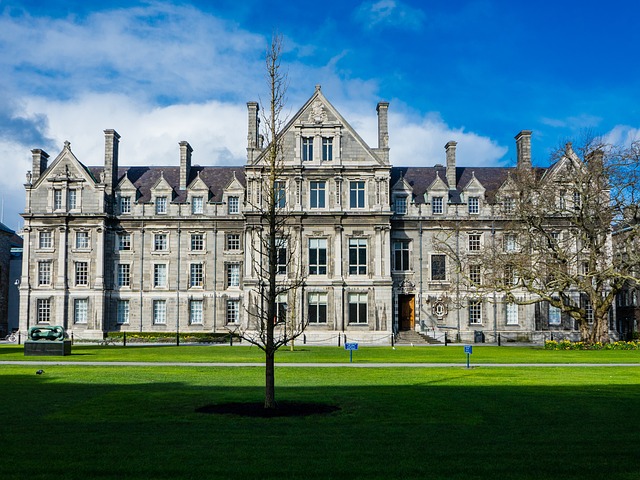Decoding legal jargon is crucial for students navigating off campus rentals to ensure a positive experience. Understanding key terms like 'tenancy' and 'lease term', reviewing lease agreements detailing rights, responsibilities, and conditions, maintaining property, fulfilling rental duties, and knowing dispute resolution processes are essential steps for successful off campus living.
Navigating student housing lease agreements can seem daunting, especially for off-campus renters. This guide breaks down the key elements you need to understand before signing on the dotted line. From decoding legal jargon and rights & responsibilities to maintenance, repairs, and dispute resolution, we cover everything relevant to off-campus rentals. By understanding these aspects, you’ll be well-equipped to make an informed decision.
- Decoding Legal Jargon: Key Terms Explained
- Off Campus Rentals: What's Included in the Agreement?
- Rights and Responsibilities: Your Obligations
- Understanding Lease Duration and Renewal Options
- Maintenance and Repairs: Who's Responsible?
- Dispute Resolution: Handling Issues Effectively
Decoding Legal Jargon: Key Terms Explained

Decoding legal jargon can be a daunting task, especially when signing a student housing lease agreement for off-campus rentals. Terms like ‘tenancy’, ‘landlord’, and ‘lease term’ are commonly used but often misunderstood by students. It’s crucial to grasp these concepts to ensure a smooth living experience.
A tenancy refers to the relationship between the landlord and tenant, outlining their rights and responsibilities. Landlords are typically the property owners or managers who provide housing, while tenants are the students renting the space. The lease term defines the duration of this agreement, specifying when the tenancy begins and ends. Understanding these fundamental terms empowers students to navigate off-campus rental agreements with confidence and protect their interests.
Off Campus Rentals: What's Included in the Agreement?

When considering off-campus rentals, students should carefully review their lease agreements as these documents outline the rights and responsibilities of both tenants and landlords. Off-campus rental agreements typically cover essential aspects such as rent amount, payment due dates, security deposits, and maintenance procedures. Unlike on-campus housing, where amenities might be included in the rent, off-campus leases usually do not encompass utilities like water, electricity, or internet services. Students must negotiate these additional costs separately with their landlords or arrange for individual utility accounts.
The agreement also clarifies expectations regarding lease duration, renewal processes, and termination policies. It may include clauses related to subleasing, pet policies, smoking regulations, and visitor guidelines. Understanding the terms of an off-campus rental agreement is crucial as it provides a legal framework for the living arrangement, ensuring a safe and secure environment for students during their time away from home.
Rights and Responsibilities: Your Obligations

When it comes to off-campus rentals, understanding your rights and responsibilities is crucial. As a tenant, you have certain obligations that are detailed in your lease agreement. One of the key aspects is maintaining the property. This includes keeping the unit clean, reporting any damages or maintenance issues promptly, and ensuring that your use of the space doesn’t cause unnecessary wear and tear.
Additionally, tenants are expected to abide by the terms set forth by the landlord, such as paying rent on time, respecting noise levels, and adhering to any specific rules regarding pets or guests. It’s essential to be aware of these responsibilities to avoid potential disputes and ensure a harmonious living environment.
Understanding Lease Duration and Renewal Options

When considering off-campus rentals, understanding the lease duration is paramount. Leases typically range from a few months to a year, with some offering flexible terms. It’s essential to review the agreement for renewal options as well. Some landlords provide automatic renewals upon satisfaction of the current term conditions, while others may require notice and could have specific criteria for continued tenancy. Knowing these details beforehand ensures you’re prepared for the next step in your housing journey.
Maintenance and Repairs: Who's Responsible?

When it comes to off-campus rentals, understanding who is responsible for maintenance and repairs is crucial. Typically, landlords or property managers are obligated to maintain the overall structural integrity of the property and ensure any necessary repairs are made in a timely manner. This includes addressing issues like roof leaks, faulty electrical systems, plumbing problems, and more. However, the specific responsibilities can vary based on the lease agreement, so it’s essential for students to read their contracts carefully.
In many cases, tenants are responsible for regular upkeep such as changing light bulbs, cleaning gutters, or replacing air filters. While landlords usually handle major repairs, students should be prepared to report issues promptly and provide detailed accounts of any damages observed. Clear communication between tenants and property managers is key to ensuring that maintenance requests are addressed efficiently, minimizing disruptions during the rental period.
Dispute Resolution: Handling Issues Effectively

When issues arise during your stay in an off-campus rental, understanding the dispute resolution process is crucial. Many lease agreements include provisions for handling conflicts between landlords and tenants. This could involve a step-by-step approach, such as first discussing the problem with your landlord or property manager, then escalating to a mediator or arbitration if necessary.
Knowing your rights and the available methods to resolve disputes can help ensure fair treatment. If maintenance issues are not addressed promptly, for instance, you may have options beyond simply living with the problem. Familiarize yourself with these processes to effectively navigate any challenges that may arise during your tenancy, fostering a positive relationship with your landlord while securing your interests as a tenant.
